Is there a way to extract scalar summaries to CSV (preferably from within tensorboard) from tfevents files?
Example code
The following code generates tfevent files in a summary_dir within the same directory. Suppose you let it run and you find something interesting. You want to get the raw data for further investigation. How would you do that?
#!/usr/bin/env python
"""A very simple MNIST classifier."""
import argparse
import sys
from tensorflow.examples.tutorials.mnist import input_data
import tensorflow as tf
ce_with_logits = tf.nn.softmax_cross_entropy_with_logits
FLAGS = None
def inference(x):
"""
Build the inference graph.
Parameters
----------
x : placeholder
Returns
-------
Output tensor with the computed logits.
"""
W = tf.Variable(tf.zeros([784, 10]))
b = tf.Variable(tf.zeros([10]))
y = tf.matmul(x, W) + b
return y
def loss(logits, labels):
"""
Calculate the loss from the logits and the labels.
Parameters
----------
logits : Logits tensor, float - [batch_size, NUM_CLASSES].
labels : Labels tensor, int32 - [batch_size]
"""
cross_entropy = tf.reduce_mean(ce_with_logits(labels=labels,
logits=logits))
return cross_entropy
def training(loss, learning_rate=0.5):
"""
Set up the training Ops.
Parameters
----------
loss : Loss tensor, from loss().
learning_rate : The learning rate to use for gradient descent.
Returns
-------
train_op: The Op for training.
"""
optimizer = tf.train.GradientDescentOptimizer(learning_rate)
train_step = optimizer.minimize(loss)
return train_step
def main(_):
# Import data
mnist = input_data.read_data_sets(FLAGS.data_dir, one_hot=True)
# Create the model
x = tf.placeholder(tf.float32, [None, 784])
y = inference(x)
# Define loss and optimizer
y_ = tf.placeholder(tf.float32, [None, 10])
loss_ = loss(logits=y, labels=y_)
train_step = training(loss_)
# Test trained model
correct_prediction = tf.equal(tf.argmax(y, 1), tf.argmax(y_, 1))
accuracy = tf.reduce_mean(tf.cast(correct_prediction, tf.float32))
with tf.name_scope('accuracy'):
tf.summary.scalar('accuracy', accuracy)
merged = tf.summary.merge_all()
sess = tf.InteractiveSession()
train_writer = tf.summary.FileWriter('summary_dir/train', sess.graph)
test_writer = tf.summary.FileWriter('summary_dir/test', sess.graph)
tf.global_variables_initializer().run()
for train_step_i in range(100000):
if train_step_i % 100 == 0:
summary, acc = sess.run([merged, accuracy],
feed_dict={x: mnist.test.images,
y_: mnist.test.labels})
test_writer.add_summary(summary, train_step_i)
summary, acc = sess.run([merged, accuracy],
feed_dict={x: mnist.train.images,
y_: mnist.train.labels})
train_writer.add_summary(summary, train_step_i)
batch_xs, batch_ys = mnist.train.next_batch(100)
sess.run(train_step, feed_dict={x: batch_xs, y_: batch_ys})
print(sess.run(accuracy, feed_dict={x: mnist.test.images,
y_: mnist.test.labels}))
if __name__ == '__main__':
parser = argparse.ArgumentParser()
parser.add_argument('--data_dir',
type=str,
default='/tmp/tensorflow/mnist/input_data',
help='Directory for storing input data')
FLAGS, unparsed = parser.parse_known_args()
tf.app.run(main=main, argv=[sys.argv[0]] + unparsed)

